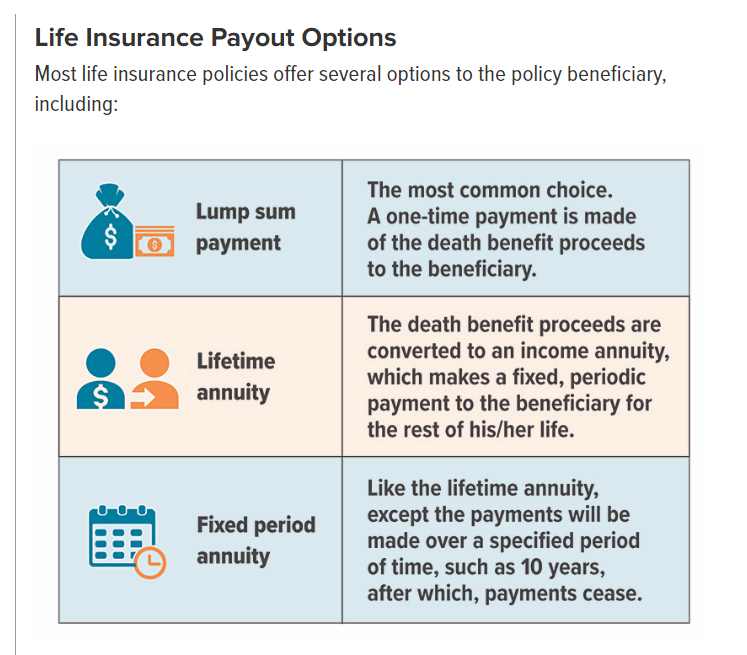

Life insurance has long been recognized as a useful way to provide for your heirs and loved ones when you die. While naming your policy’s beneficiaries should be a relatively simple task, there are a number of situations that can easily lead to unintended and adverse consequences. Here are several life insurance beneficiary traps you may want to discuss with a professional.
Generally, life insurance death proceeds are not taxed when they’re paid. However, there are exceptions to this rule, and the most common situation involves having three different people as policy owner, insured, and beneficiary. Typically, the policy owner and the insured are one and the same person. But sometimes the owner is not the insured or the beneficiary. For example, mom may be the policy owner on the life of dad for the benefit of their children. In this situation, mom is effectively creating a gift of the insurance proceeds for her children/beneficiaries. As the donor, mom may be subject to gift tax. Consult a financial or tax professional to figure out the best way to structure the policy.

As with most financial decisions, there are expenses associated with the purchase of life insurance. Policies commonly have mortality and expense charges. In addition, if a policy is surrendered prematurely, there may be surrender charges and income tax implications. The cost and availability of life insurance depend on factors such as age, health, and the type and amount of insurance purchased.
While trusts offer numerous advantages, they incur up-front costs and often have ongoing administrative fees. The use of trusts involves a complex web of tax rules and regulations. You should consider the counsel of an experienced estate planning professional and your legal and tax advisors before implementing such strategies.

Financial Advisor
Louis Financial Group, LLC
7971 Riviera Blvd Suite 326| Miramar, FL 33023
Phone:(954)505-2927 x930 |Fax:(954)681-4195
The information provided is not written or intended as specific tax or legal advice and may not be relied on for the purpose of avoiding any federal tax penalties. Louis Financial Group, LLC, its employees, and representatives are not authorized to give tax or legal advice. Individuals are encouraged to seek advice from their own tax or legal counsel based on their individual circumstances.
Also, the information presented here is not specific to any individual’s personal circumstances. These materials are provided for general information and educational purposes based upon publicly available information from sources believed to be reliable— we cannot assure the accuracy or completeness of these materials. The information in these materials may change at any time and without notice.
This communication is strictly intended for individuals residing in the state of FL. No offers may be made or accepted from any resident outside the specific states referenced.
Prepared by Broadridge Advisor Solutions Copyright 2023.

Investment advisory and fee-based financial planning services are offered through LFG Wealth Management, LLC, a State (FL) registered Investment Advisory Firm. 7971 Riviera Blvd Suite 326, Miramar, FL 33023 (954)526-5240. Additional information about LFG is also available via the SEC’s website: http://www.adviserinfo.sec.gov.You can search this site using a unique identifying number, a CRD number. The CRD number for LFG is 171123.
LFG Wealth Management, LLC offers access to securities through Altruist Financial LLC, a self-clearing broker-dealer. Member FINRA/SIPC. Check the background of Altruist Financial LLC on FINRA’s Broker Check. Shareholders Service Group, Inc. (“SSG”) is also a member of FINRA/SIPC with clearing and custody provided by Pershing LLC, Member SIPC. LFG Wealth Management, LLC’s clients establish brokerage accounts through Altruist. LFG Wealth Management, LLC maintains an institutional relationship with Altruist whereby Altruist provides certain benefits to LFG Wealth Management, LLC, including a fully digital account opening process, a variety of available investments, and integration with software tools that can benefit LFG Wealth Management, LLC, and its clients.
Insurance products are offered through Louis Financial Group, LLC, and Louis Insurance Agency, Inc, licensed insurance agencies registered in Florida. Tax and Accounting Services are offered through LFG Accounting Services, LLC. LFG Wealth Management, LLC, LFG Accounting Services, LLC, Louis Financial Group, LLC, and Louis Insurance Agency, Inc are not affiliates or subsidiaries of Shareholder Service Group, Inc, Altruist LLC, and Altruist Financial LLC.
"*" indicates required fields
Get the latest insurance, retirement, and financial planning news.